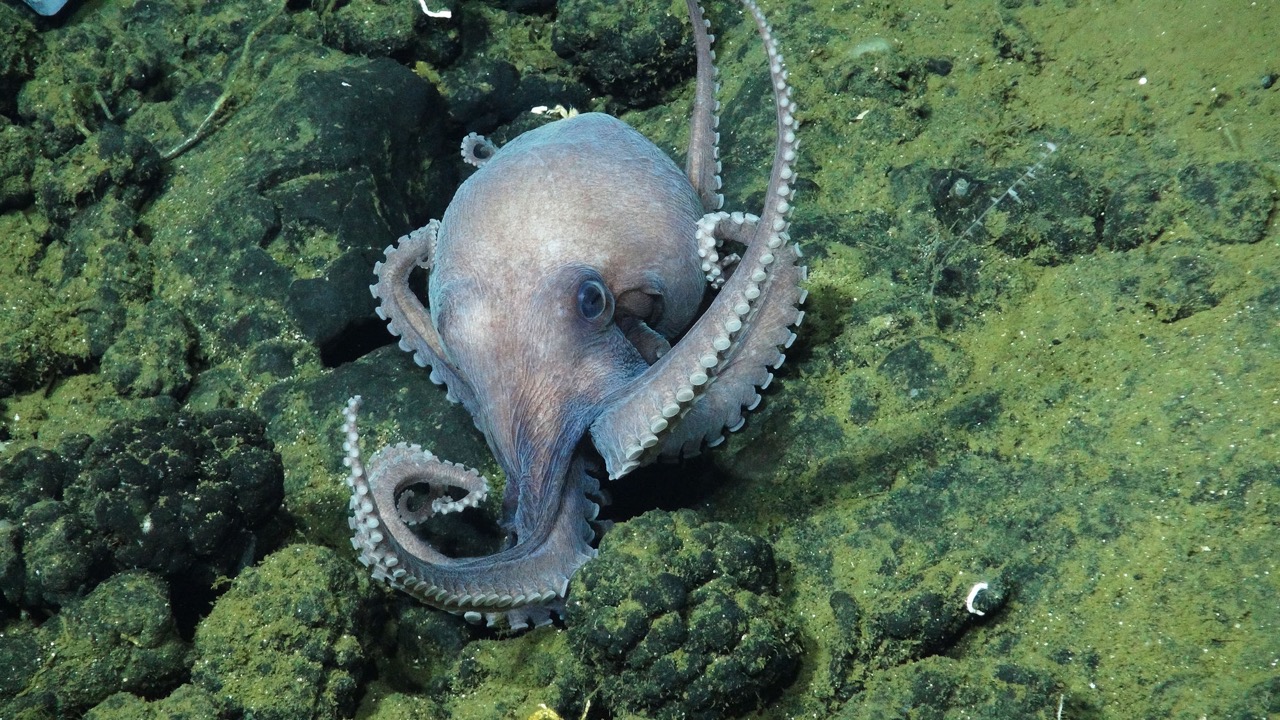In a strong move towards animal welfare, the association INTERCIDS, which acts as a legal advocate for animals, has developed a proposal to ban octopus farms in Spain.
Currently, there is no regulation that governs this type of farms. Therefore, the organization has drafted a proposal aimed at directly prohibiting them.
They Propose to Ban Octopus Farms in Spain: What Consequences Does It Bring to Animals
“Since the multinational Nueva Pescanova announced its intention to establish an octopus farm in Spain in 2021, the first in the world, there has been a strong public outcry that continues to demand from public authorities in our country to prevent this type of activity,” argue from INTERCIDS.
 The controversial octopus farms in Spain.
The controversial octopus farms in Spain.
“Due to their cruelty against animals and their harmful effects on the already deteriorated marine environment,” they added when reporting on the project.
According to the information provided, scientific studies on octopuses have shown that they are animals with “great cognitive and behavioral complexity, memory, curiosity, and ability to explore.”
Furthermore, they can use tools, solve complex problems, plan, and anticipate. Scientific evidence also indicates that octopuses can experience physical and emotional pain, as well as remember that suffering and feel fear.
“Keeping them in captivity is to destroy them, it is incompatible with their needs, subjected to a stimulus-free environment and at risk of suffering injuries and illnesses,” argue from INTERCIDS.
Most octopuses are solitary by nature, and it has been documented that in confinement and overcrowding situations, they self-harm or attack each other.
Moreover, there is evidence that the lack of environmental stimulation can have a detrimental impact on the cognitive attributes and capabilities of this animal. Additionally, there is no method to stun them before killing them, without causing them pain or distress.
Negative Consequences for the Marine Environment
As indicated by the association, this also generates consequences in the marine environment. The discharge of waste and recirculated water into the sea alters the aquatic environment and impacts the species living in it.
The use of chemical and toxic products that can contaminate the environment and even threaten public health:
- CO2 emissions contributing to the greenhouse effect.
- Light pollution affecting various animal species.
- Issues arising from the foul odors produced by these farms.
- The risk that octopuses raised in captivity, with diminished abilities and capacities, are accidentally released into the sea, negatively impacting other individuals and the ecological balance.
 The project aims to ban octopus farms.
The project aims to ban octopus farms.
“All these negative consequences, for the animals and the already very fragile marine environment, cannot be justified in favor of the massive industrial exploitation of octopus,” states INTERCIDS.
“Which is neither a staple food nor meets the food security needs that justify its intensive production in farms,” they add.
That is why the association, composed of judges, prosecutors, lawyers, solicitors, police officers, and forestry agents, advocates for its legal prohibition.
The Proposal: Amending the Marine Farming Law
The proposal by INTERCIDS, which has already been submitted to the Parliamentary Association for the Defense of Animal Rights (APDDA), involves amending Law 23/1984, on Marine Farming.
This is to ban octopus aquaculture for consumption and other productive purposes, as well as the commercialization of octopuses from these farms.
To do this, the entity appeals to the State’s competence to legislate in a basic manner on environmental protection and general economic planning. Furthermore, it respects the competences of the Autonomous Communities on aquaculture and environmental management.
In its proposal, the entity argues that the amendment to this Spanish law is fully consistent with the “Strategic Guidelines for a more sustainable and competitive EU aquaculture for the period 2021-2030”.
Among them, the European Commission indicates that “ingredients in feed should be used in a way that is as respectful as possible to ecosystems and biodiversity.”
Furthermore, it is stated that, at the same time, they should “be suitable to ensure the health and well-being of animals”.

